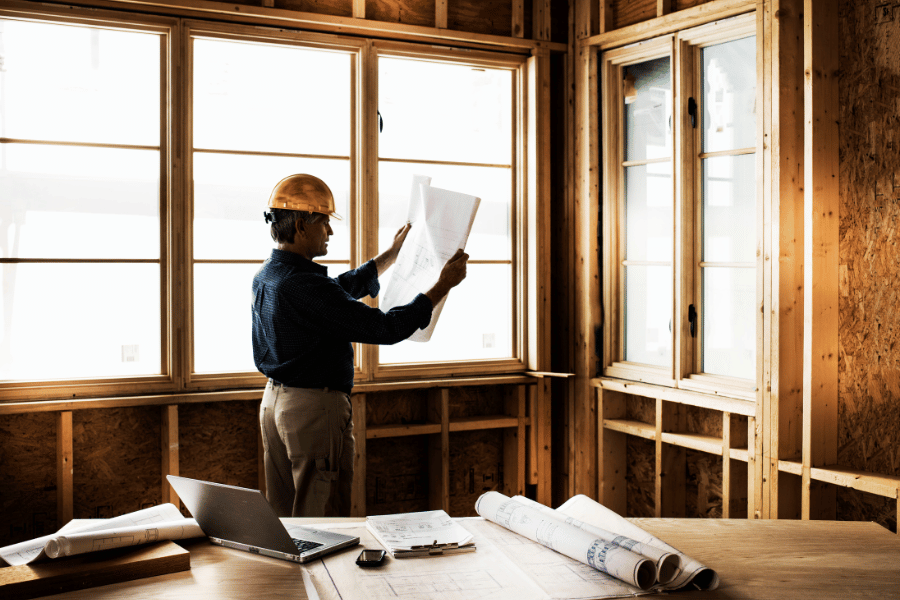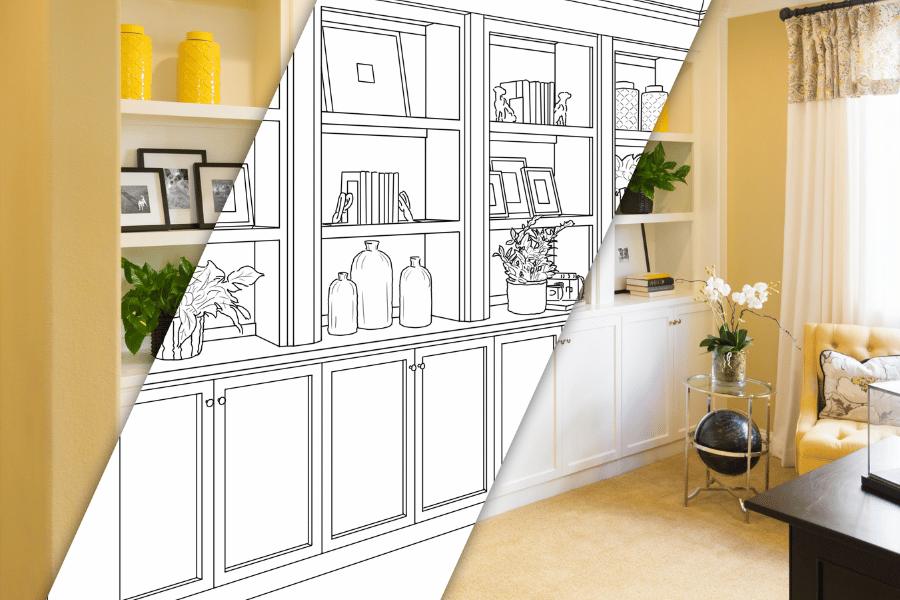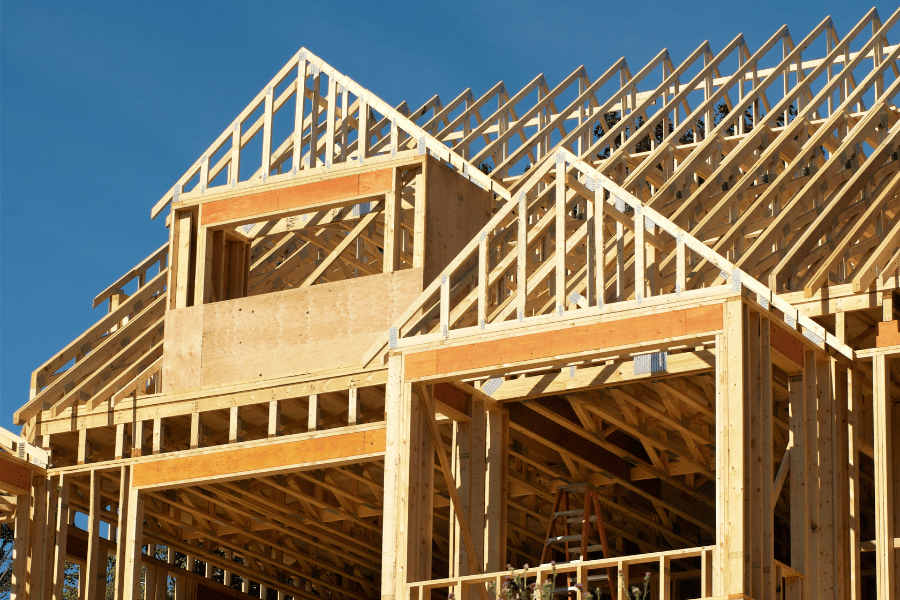7 Tips For Negotiating With a Home Builder

Tips For Negotiating With a Home Builder
Are you wondering how you can negotiate with a home builder? Here are some tips and tricks to help you negotiate effectively with a home builder.
Remember that almost everything is negotiable when negotiating for a new construction property. It's vital to immerse yourself in market timing and leverage seasonal trends and economic indicators for better negotiation leverage. Don't hesitate to research and be patient to show that you are confident in what you want.
Builders are more likely to negotiate when demand is low, so it's imperative to approach them confidently. Despite the common perception, you can ask for upgrades or lower prices when building a new house.
Don't hold back from asking for what you want, as building a house is one of the best investments you will make. Don't be afraid to negotiate, and always seek tips and tricks on how to negotiate with a builder. Additionally, consider consulting your agent for more advice and support.
Rising builder sentiment closely tracks the solid level of single-family production in February. With mortgage rates expected to moderate this year, this will provide an added boost for single-family buildings. If you are interested in building a home this year, keep reading to learn more about how to get the best deal.
Here are tips for negotiating with a home builder.
Chapters
1. Leverage Market Timing
Understanding market timing gives you a significant advantage when negotiating a lower price for your new home. By closely monitoring seasonal trends and economic indicators, you position yourself to make more informed decisions. Typically, the real estate market experiences fluctuations throughout the year, giving you a better chance to strike a deal.
Economic indicators such as interest rates and housing market reports signal the best buying times. A rise in interest rates might cool down buyer competition, while a report showing an increase in unsold home inventory indicates a buyer's market. Builders are more likely to negotiate a price to avoid sitting on too much inventory.

2. Research Builder Inventory
To secure the best deal on your new home, meticulously research the builder's inventory. This step is essential to comprehensively understanding the builder's market position, reputation, and customer perception.
Start by thoroughly examining the builder's website and sales center to assess their current inventory and the duration the homes have been on the market. This will provide you with significant leverage during negotiations, especially for homes available for an extended period.
Furthermore, it's imperative to scrutinize the builder's reputation. Conduct thorough online research for reviews and seek direct customer feedback. Pay close attention to comments pertaining to construction quality, issue responsiveness, and overall ranking. This insightful information will not only inform you about the builder's standing but also equip you with valuable negotiation points.
3. Utilize Competitive Quotes
After researching the builder, gathering competitive quotes to bolster your negotiation is crucial. Approach several builders for quotes on similar homes to gain a clear picture of the market rates and to have leverage when negotiating with your chosen builder.
Share these quotes with your builder, including the price differences, to prompt discussions on price matching, especially if the builders are competing in the same market.
Ensure that the quotes you find are up to date, as this will significantly impact your negotiation. Builders are more likely to take into account price adjustments if the competitive quotes are current and accurately reflect the current market conditions. Scrutinize all the details in the quotes to guarantee the correct comparison, such as specifications, materials, and finishes that will impact the price.

4. Negotiate Add-Ons and Upgrades
If you are ready to buy and have the financial stability to do so, you are able to focus on negotiating add-ons and upgrades to get even more value from your home purchase. Builders often have more leeway with these than they do with dropping the price point.
When building a home, you can ask for personalization options that immediately make your house feel like your home. So, don't settle for the standard features. You are able to explore any catalog for upgrades to find the things that fit you, whether it's high-end appliances, smart home technology, or premium flooring.
Negotiating upgrades is not just about getting these added features and styles but securing them at a reduced cost or including them as part of the purchase agreement. You may also want to consider the upgrade warranty, which gives you peace of mind coverage for your new home's systems and appliances, ultimately saving you more money in the long run.
As you negotiate these upgrades, remember to discuss warranty extensions or enhancements as well. This will ensure that you are not only personalizing your house but also investing in its long-term value.
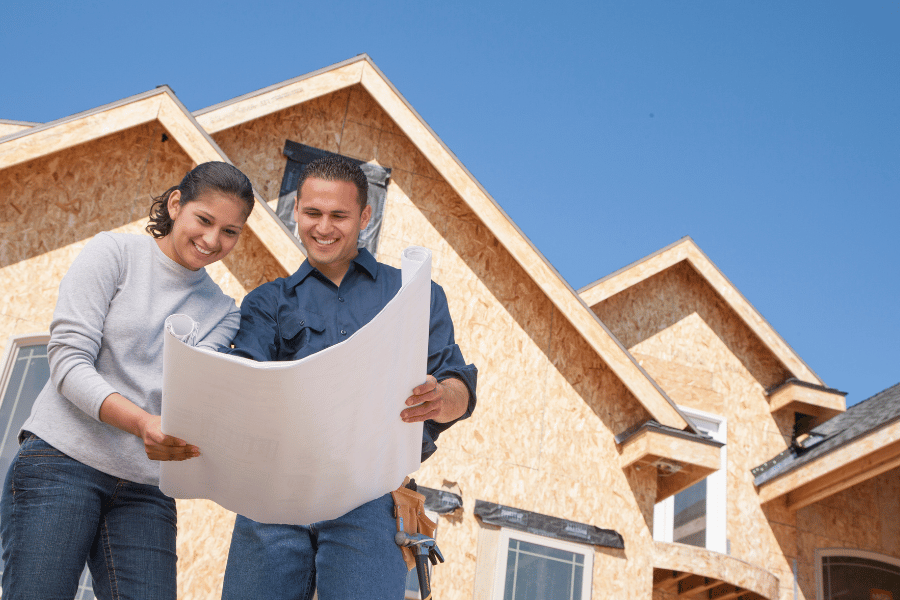
5. Highlight Payment Readiness
When looking at a new house, it's crucial to demonstrate your ability to pay. You can do this by providing a pre-approval letter or proof of funds to the builder. Preapproval shows the builder that you are a serious buyer and ready to make a purchase, giving you leverage to negotiate the price and specifications.
Showing interest and readiness for the next steps are two different things. Builders are more likely to consider price adjustments when they know you are a committed buyer who can close the deal. By highlighting your payment readiness, you show your commitment and capability to purchase, which is a compelling reason for builders to work with you and reassures them of a smooth transaction.
6. Things To Consider When Negotiating
Remember, when negotiating, be practical. You may not be able to secure a drastically low price on a house through negotiations. Still, you can certainly negotiate for additional builder credits, favorable contingencies, extended warranties, and coverage of closing costs.
Before engaging in negotiations with your builder, ensure that you are well-prepared with all necessary information and statistics. Educate yourself on what is reasonable to ask for. Here are some important factors to consider before making an offer.
- Understand the cost of building a house
- Understand the local real estate market. Buyer/seller market?
- Research builders before starting negotiations
- Go for houses that are already complete. Builders are more eager to sell completed houses and more likely to negotiate
- THe first few houses in a new development are always cheaper
- Wait for the end of the year when builders are more desperate to reach sales quotas
- Get everything in writing as you negotiate
- It is okay to walk away if you feel like you are not getting a good deal
- With work, an experienced realtor who knows the market and can negotiate with you
7. How To Negotiate With Your Builder
Before you begin negotiating for a new construction home, it's essential to understand the basics of the process and where the building currently stands. For example, if the flooring is already installed, you're less likely to be able to negotiate for a different flooring option at no extra cost.
Once you are familiar with the process and you access where your desired home is in the process, you can start to negotiate with the building. A few things you can negotiate are:
Financing New Construction
Builders typically have a preferred lender, but you are not obligated to use that lender. It's important to shop around and compare rates from different lenders to find the best deal on your home loan.
The preferred lender may offer buyer incentives to make the deal more appealing. If these incentives are not mentioned, it's still worthwhile to inquire about them, such as closing costs, lower interest rates, or payment for a home inspection.
If you find a better deal with another lender, you can use it as a basis to negotiate with the builder's preferred lender to see if they can match it. Evaluate the loan terms, closing costs, and the lender's reputation to make the best decision. Regardless of the incentives offered, always review the fine print carefully.
Ideal Floor Plan
Many people purchase homes because they want the option to customize features and choose a floor plan. If you want to negotiate the home's overall layout, it has to be done at the right moment in the timeline of the build. A builder is unlikely to knock down walls they have already built, but if it is in the beginning stage, they may be more willing to do so or add more square footage.
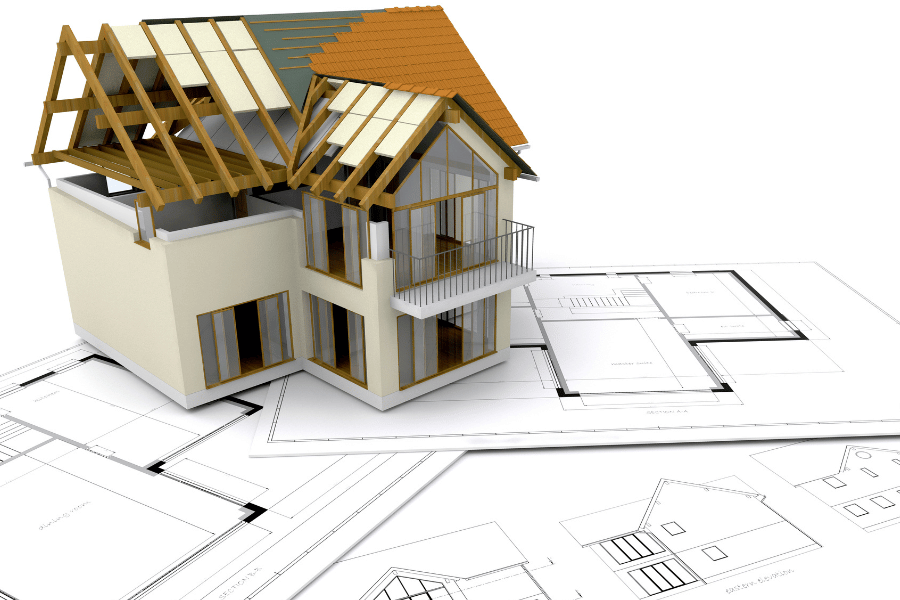
Upgrades
When it comes to negotiating upgrades, there are many options available. Opting for minor upgrades increases the likelihood of success. Builders can secure favorable deals with suppliers, offering discounts or even including upgrades for free.
It's important to note that some upgrades can be more complex if many features are already installed in the home. Switching a fridge might be straightforward, but changing paint colors could be more challenging. Therefore, it's crucial to consider the process and labor involved carefully.
Saving HOA Fees
If your new construction home is in a subdivision, you are likely to pay homeowners association fees (HOA) when you purchase it and every month. You could ask the builder to cover your HOA fees for the first year. Some builders will agree to help offset the cost of buying the home.
Protecting Your Purchase
New homes typically come with builder warranties. A standard warranty for new construction includes one-year coverage on structural elements such as siding, flooring, and drywall. It may also cover heating and cooling systems, plumbing, and electrical components for two years. If you want more from the builder warranty, try to negotiate for a more extended coverage period and consider including light fixtures and appliances in the warranty.
Methodology
We used information from different sources and our data to create this guide, which provides tips on negotiating with a home builder. We used various data sets, so we put them together to help you understand tips and tricks.
- National Association of Realtors
- HomeLight
- National Association of Home Builders
- Home Builders Association of Raleigh - Wake County
The following are a few sources we used to gather most of our information about the tips for negotiating with a home builder.
FAQS
How do you negotiate the price with a new home builder?
If you want to negotiate a price with a home builder, know the builder's incentives, shop around for financing, ask about upgrades, select a premium lot, and many other things.
What is a reasonable negotiation on the house?
In a buyer's market, offering up to 20% under a seller's asking price can be acceptable, assuming the home requires repairs. Otherwise, you can negotiate 1-10% below the asking price.
When should a buyer walk away from a house negotiation?
The seller may be unwilling to discuss the price or agree to a concession that makes the home a better deal. If this makes buying a home unaffordable or uncomfortable with the risks unwebbed, you may be better off walking away.
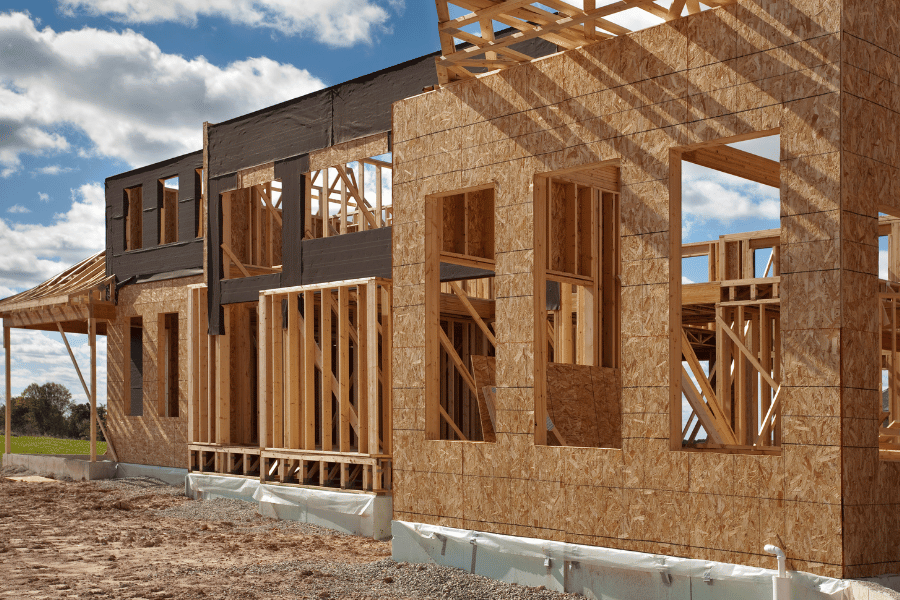
Tips For Negotiating With a Home Builder - The Bottom Line
Negotiating is a crucial skill that requires knowing when to stand firm and when to walk away. Whether you're seeking a lower price or an upgrade, remember these fundamental principles: work with an experienced agent, be well-informed, investigate the timeline, be creative, and understand your limits.
When purchasing a newly built home, it's essential to recognize that negotiation is still possible. Conduct thorough research on the builder and construction type to empower your negotiation strategy.
Owning a home is the American dream, and constructing your dream home from the ground up offers an alternative to the traditional home-buying process. While it allows you to avoid making offers and engaging in bidding wars, it remains demanding.
The Raleigh area boasts numerous reputable home builders. It's imperative to conduct comprehensive research, ask pertinent questions, and engage with multiple builders. As you'll be closely collaborating with the chosen builder, finding the ideal fit for the job is paramount.
If you are considering moving or selling, contact us or visit our website. Our team at Raleigh Realty is here to help you with any home buying or selling needs.

Ryan Fitzgerald
Hi there! Nice to 'meet' you and thanks for visiting our Raleigh Real Estate Blog! My name is Ryan Fitzgerald, and I'm a REALTOR® in Raleigh-Durham, NC, the owner of Raleigh Realty. I work alongside some of the best Realtors in Raleigh. You can find more of my real estate content on Forbes, Wall Street Journal, U.S. News and more. Realtor Magazine named me a top 30 under 30 Realtor in the country (it was a long time ago haha). Any way, that's enough about me. I'd love to learn more about you if you'd like to connect with me on Facebook and Instagram or connect with our team at Raleigh Realty. Looking forward to connecting!
Related Blogs
